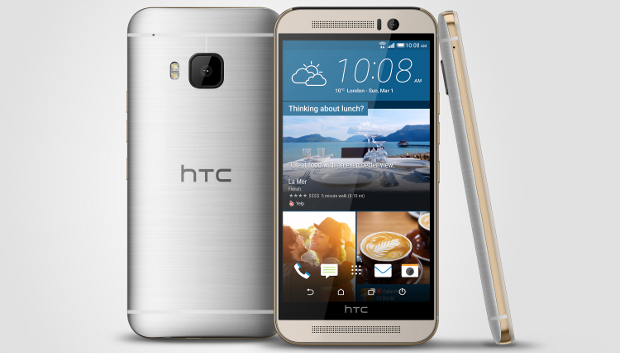The financial future of smartphone maker HTC appears dire, analysts say, even as the company has remained upbeat.
Some analysts want HTC, based in Taipei, to go private amid a crowded and competitive smartphone market so that it is easier to innovate.
Other analysts hope HTC can drastically boost its marketing dollars for its Android handsets like the HTC One M9+ to compete with top Android maker Samsung and a crowd of Chinese low-cost handset makers like Huawei, Lenovo and Xiaomi.
HTC has seen a 60% drop in its stock this year, pushing its total market value to below the amount of its cash on hand, a situation that means investors view its brands and physical plant as basically worthless, Bloomberg reported late Sunday.
On Monday, HTC’s total market capitalisation (its stock price times outstanding shares) dropped to NT$47 billion (about €1.3 billion), just under the NT$47.2 billion in cash that HTC last week reported it had for the end of the second quarter on 30 June.
Recent trading on the Taipei Exchange has seen HTC’s stock decline 4.5%.
Last week, in its second-quarter earnings report, HTC reported its revenues dropped by nearly half year over year to NT$33 billion, while operating profit fell to minus NT$5.1 billion. Earnings took a dive to a NT$8 billion (€222 million) loss.
The company reported weaker than expected demand for high-end smartphones and weak sales in China. It also said it has begun to implement company-wide efficiency measures to reduce operating costs.
Cher Wang, HTC’s chief executive, called the current market climate “challenging”. Still, she added in a statement, in a flurry of optimism that analysts found remarkable, “I am confident that our smartphone phone and connected devices strategy is the right one for HTC.”
A dramatic decline in HTC revenues started at the beginning of the second quarter, when year-over-year revenues declined by 39% for April and then bottomed out at a decline of 60% in June.
Windows 10 Mobile
“HTC has faced serious competition in the smartphone space, and its latest M9 smartphone didn’t bring any particularly impressive improvements over the M8,” said James Moar, an analyst for Juniper Research. The M9 (pictured), released in March, looked almost identical to the M8, other analysts noted.
Juniper expects HTC to continue to launch more smartphones in the third quarter, including at least one device (or a modified current device) to run Windows 10 Mobile. “Any decisions about the company as a whole should wait until Windows 10 Mobile comes out,” which is expected this fall, Moar noted.
“If HTC can establish itself as the premier alternative to Lumia for Windows smartphones – and it certainly as the design capability to do so – we could see a reversal in fortunes, particularly as Windows OS can function as a differentiator in the market saturated with Android smartphones,” Moar added.
Juniper estimated that HTC has just 1.2% share of the market for smartphones, placing them 10th in global vendor rankings. IDC had HTC ranked in the top 20 smartphone makers in the first quarter, with a 1.5% share.
Viva Vive
Ramon Llamas, an analyst at IDC, argued that HTC “should not fold up and go away, even though a lot of people are predicting that,” he said.
HTC’s recovery will depend a lot on how nimble it can be in capitalizing on emerging markets, Llamas said.
Both Llamas and Moar said HTC’s investments in virtual reality could be promising. “I’m eager to see what HTC does with its head-worn VR device,” Llamas said.
“There has been quite a bit of excitement about the potential for the company’s VR product, although no release date has been set for that yet,” Moar added.
HTC, in its earnings release, noted that its HTC Vive VR product will launch at the end of 2015. More than 1,000 developers are working with HTC on content creation for gaming, entertainment and education apps for the Vive, HTC said.
HTC’s decline “has a lot to do with the fact that the brand has lost some of its polish, and the offering is becoming incrementally better but nothing that different from the previous model,” added Carolina Milanesi, chief of research at Kantar Worldpanel. “HTC would need a different design as well as a lot of marketing investment to be able to compete with the large marketing budgets that Samsung has or the strong presence Apple has.”
Milanesi agreed that it would be difficult to find a buyer. “The HTC brand will not add value to an up-and-coming vendor,” she said. “HTC just doesn’t have anything that sets them apart from their competitors.”
Computerworld






Subscribers 0
Fans 0
Followers 0
Followers